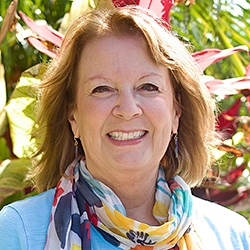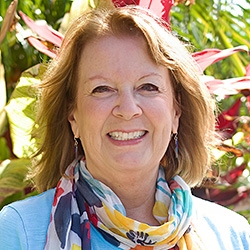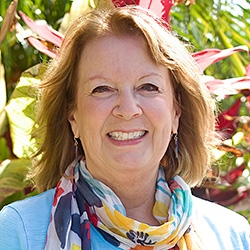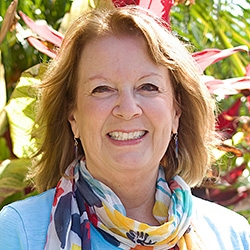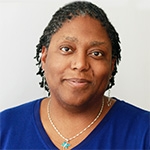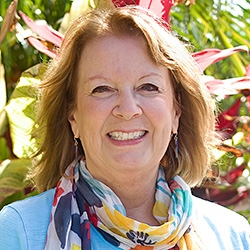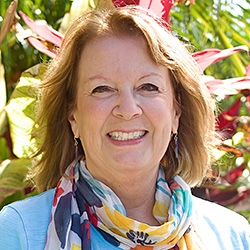
Search Results: criticism
-
Telling yourself to be a certain way or have more of a certain quality (like courage), is a set-up for self-criticism and possibly freezing or avoiding. Instead, access effective action by asking yourself questions like: "If I could be or have that, what actions would be different inside or out?" "If I could be or have that, what needs would be met and knowing those are the needs, what could I do or ask for that would meet those needs?"
-
Trainer Tip: Changing your thoughts can change the way people experience you. Just for today, see if you can notice when you have judgmental thoughts about yourself or other people. Then look to translate those thoughts into your feelings and needs. Read on for an example of how this works.
-
Trainer tip: Be aware of times when you are judging others, demanding, making comparisons, or denying responsibility for your actions. Notice how these communication patterns affect your connection with other people.
-
When someone behaves in a way that you may label convincing, cajoling, guilt-tripping, threatening, analyzing, or criticizing, you may be tempted to guess they have a "need" for control. Instead, name what this person is doing that isn't meeting your needs. If it is a true need your heart will have softened. If you feel resentment or resistance, you are likely making a judgment rather than guessing what they are needing.
-
Trainer Tip: Making a request is critical because it can greatly lessen any tension in the situation. Plus, it can clarify for you and the people in your life what it would take to meet your need. Make at least one specific and doable request to someone today.
-
Notice when you start to defend. Is your body tensing up? Feeling desperate for the other to understand you or your intentions? Find yourself explaining your behavior, giving all the good reasons why you did what you did? Trying to convince the other of your good intentions? If so, ask yourself: “Is this what I want to be doing right now? Is this really helping?” then practice one of these eight options.
-
Fear can show up as a thought or feeling. When we think and dwell on fear and get stuck, fear becomes our worst enemy. For a healthier approach, discover what brings up the emotion of fear by looking for the unmet need behind it. Next, identify the stimulus for the fear. Then satisfy the need(s) with suitable strategies. You can also reassure yourself based on the truth, evidence, and facts. Or ask a friend for support.
-
Trainer Tip: It is true that we cannot fully understand other people until we understand ourselves. Gain understanding and healing through self-empathy within the Compassionate Communication process.
-
- Uncover the expansive possibilities of Nonviolent Communication in growing compassion for a more empathic world
- Engage with 17 global trainers on 17+ unique topics
- Connect with an international audience from novices to experts
- Immerse yourself in a festival of learning, fun, and community
-
This gentle, healing telecourse recording will assist you in unearthing feelings and issues that have become tangled up with loss, enabling you to face whatever is blocking your grief.
-
Do you yearn to step forward in leadership, but know you're holding back? Clinical psychologist, organizational consultant, and speaker, Roxy Manning, PhD, shows us that more than external factors, its our internal beliefs and fears that provide the main barrier to moving forward. She does this by taking us through three myths of leadership, and weaves in anecdotes to illustrate how tapping our unique (often lesser recognized) qualities, can be the way forward we've been seeking. Learn ways to move forward, even if at first it appears that (1.) others can "do it better", (2.) you need to be more prepared, or even if (3.) the material you're conveying isn't so original (and has been used many times).
-
Sometimes there are moments when empathy has no effect at all on one another. Why? One reason could be that our brains maybe less receptive because of unseen forces that affect our nervous system and relationship to others...
-
Sometimes there are moments when empathy has no effect at all on one another. Why? One reason could be that our brains might be less receptive because of unseen forces that affect our nervous system and relationship with others.
-
When we don't like what someone is saying to us, sometimes people encourage us to hear their needs, and "not take it personally" -- and we're inclined to agree. Could "not taking it personally" close our hearts and awareness to others, life and ourselves? Rachelle Lamb invites us to take a closer look at what it's like when we attend to the situation from our hearts, and skillfully reflect upon our actions with tenderness.
-
Sometimes even a very skilled empathy practicitioner can go into offering a non-empathic response, even when asked for empathy. Why? One reason could be that our brains might be less receptive because of unseen forces that affect our brain and relationship with others. This article speaks to the deeper "why" and also to one thing we could do to turn it around...
-
Misunderstandings can be painful. We can easily avoid this by checking what the other person understood from what we said, and ask the other person to do the same. Doing this is especially important when it comes to planning, shared decision-making, and when emotions are strong. Also, the more someone knows you, the more they think they already know what you mean -- which can get in the way of really hearing you. Here are a variety of ways to approach this simple strategy.
-
Trainer Tip: Be aware of opportunities today to choose empathizing over arguing with someone who is angry, and notice how it affects your ability to resolve the situation. Read on for more.
-
The less blame and criticism, the easier it is for others to hear us. From this perspective, it’s in our best interest to come from curiosity and care. This way differences can bring us together and help us know one another. The more mutual understanding, the easier it is to work together and find creative solutions. Read on for more on this, with a story about how a black man inspired 200 members of the KKK to leave the organization.
-
Trainer tip: In every interaction, we have a choice of responding in one of these four ways: judge/blame self, Judge/blame others, empathize with self, and/or empathize with others. The goal is to make a conscious choice about our response. Notice the choices you have when you receive someone’s communication today.
-
A big part of why receiving feedback is so challenging is because so few people around us know how to give feedback untainted with criticism, judgment, or our personal upset. But, if we wait for others to offer us usable, digestible, manageable feedback, we will not likely receive sufficient feedback for our growth and learning. Instead, we can grow in our capacity to fish the pearl that’s buried within. Here are three specific suggestions for how.


